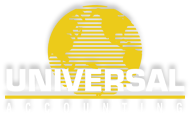Effective Email Communication (Part One of a Two-Part Series)
10 Rules to Follow in Your Electronic Correspondence

1. A clear and defined subject lineConsidering all the email messages people receive a day, and then all the email messages one business associate might receive from you in a week, it’s important that each email you send have a clear and defined subject line. You may think “payroll” is specific enough. But what if your client is searching for a specific email from you about payroll-they may have to sift through hundreds of emails trying to find what they’re looking for. Make it easier for everyone by adding detail: June’s payroll discrepancies. When you do so, it makes it much easier for the recipient to anticipate and recall its contents.2. Short and concise messagesMost people are discouraged when they open an email with a long and wordy message. Try to make your messages as short and concise as possible. When possible, break longer messages into smaller paragraphs; “chunking” information in this fashion can make longer text more manageable to your reader. And if you find your message needs to be longer, consider relaying it in a phone conversation or a face-to-face meeting.3. Grammatically-minded emailNothing makes you look less professional than sending an email that’s riddled with spelling errors and grammatical mistakes. While you may be articulate in person, sending a sloppy email message could communicate a completely different image to your client. Most email programs check your spelling, and you may consider running your message through a word processing program that will check your grammar as well.4. Include a signatureThis is a feature included in most email programs. You can add a signature that automatically includes your work number and address, including a tag line or slogan. This is also a great place to include the URL to your business website and/or blog; consider it free and unobtrusive marketing.5. Respond quicklyThis is proper email etiquette. You would be frustrated if a business you worked with didn’t respond to your calls or ignored your pleas for customer service all together. When possible, respond to emails within 48 hours, and if you can’t answer the sender’s question or respond to a request, send a message indicating that you’re working on it and will email an adequate reply as soon as possible.
As a business owner, you probably correspond via email frequently. In order for your emails to be professional and effective you must practice a few rules of electronic correspondence. Here we’ve addressed 5 of ten rules in practicing effective email communication. Return next week when we’ll discuss the remaining five rules:
6. When possible, personalize the emails sent to mailing lists7. Mind your attachments8. Avoid all-caps9. Use CC and BC correctly10. Be as courteous and personable as possible
Share this post: on Twitter on Facebook on Google+




